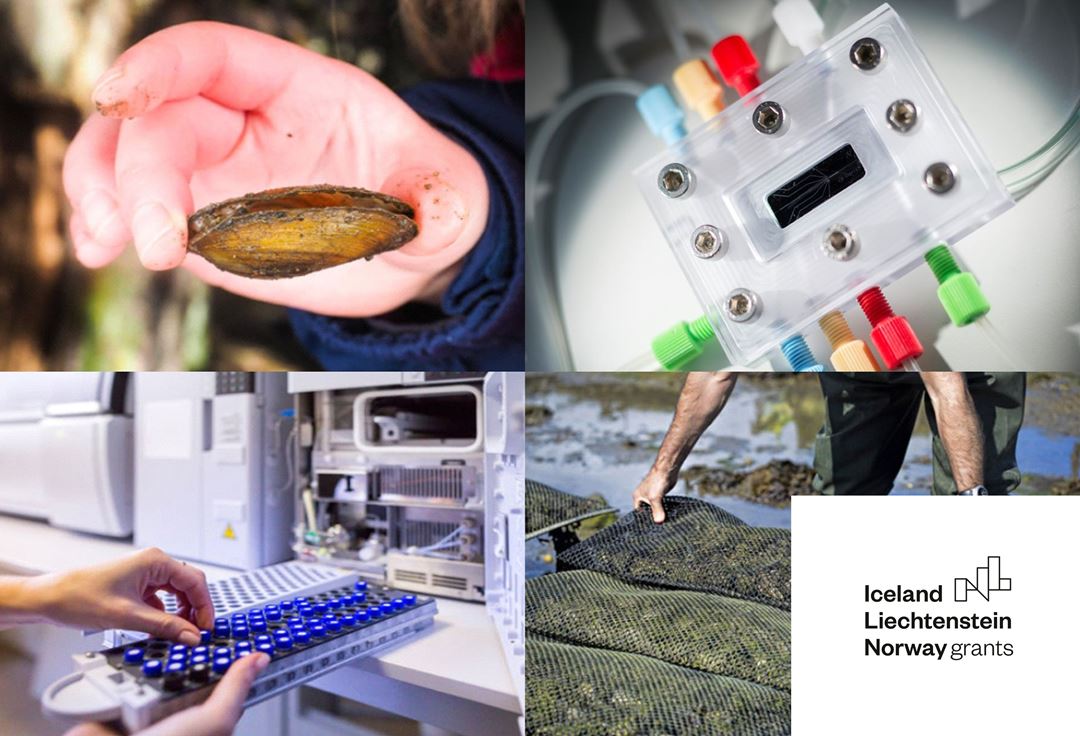COASTAL - MiCrofluidic sensOrs for rApid detection of marine toxins in SusTainable AquacuLture
Due to the unpredictability of the occurrence of HABs, routine surveillance programs of toxins in commercial bivalves were established in the EU countries including Portugal and also Norway. Of the groups of toxins included in the monitoring programs, the paralytic shellfish toxins (PSTs) represent an important public health threat. The official method for PSTs detection is liquid chromatography (LC) combined with fluorometric detection (FLD), requiring expensive instrumentation, laborious sample handling, and highly skilled personnel. There are currently no alternative PSTs screening tests that could be employed outside the laboratory settings, by operators without specialized skills and simple sample preparation.
The COASTAL consortium, a multi-disciplinary team of research experts in the field of marine toxins, micro- and nanofabrication, electrochemical sensors, biosensors, and microfluidics, will work together on the development of alternative, miniaturized sensing tools for the rapid detection of PSTs relevant for monitoring in Portuguese and Norwegian coastal waters. The proposed system will consist of a miniaturized chemical sensor integrated into a microfluidic network of channels and chambers that facilitate efficient sample (bivalve tissues extract) and reagents manipulation required by the detection method (potentiometry) and applicational settings. The project crucially relies on the state-of-the-art cleanroom facilities as well as knowledge and experience in methodology related to the design and manufacture of Si-based microsystems, a key competence pillar at SINTEF MiNaLab. In addition, the process involves heterogenous integration of sensor materials.
The project promoter is the University of Aveiro (UA), and the partner Portuguese Institute for the Sea and Atmosphere (IPMA) from Portugal. The Norwegian partners in the consortium are SINTEF MiNaLab, and the Norwegian University of Life Sciences (NMBU).

